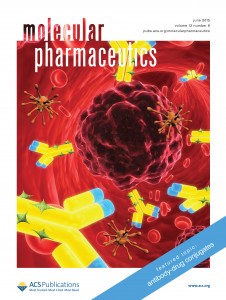 The authors of a pair of papers in Molecular Pharmaceutics are retracting them following an investigation at the University of Colorado Denver, which found a graduate student had faked data.
The authors of a pair of papers in Molecular Pharmaceutics are retracting them following an investigation at the University of Colorado Denver, which found a graduate student had faked data.
Rajendra Kadam was a prominent member of the Research lab of Uday B. Kompella, until the investigation revealed earlier this year that he had “falsified” data from a liquid chromatography-mass spectroscopy (LC-MS) machine for years.
So far, we’ve found four retractions (including the latest two) and one expression of concern for Kadam. There may be more on the way:
In the official report, University officials recommended 10 retractions and eight expressions of concern for studies co-authored by Kadam.
Here’s the notice for “Hydrophilic Prodrug Approach for Reduced Pigment Binding and Enhanced Transscleral Retinal Delivery of Celecoxib.” It has been cited three times, according to Thomson Scientific’s Web of Knowledge.
The authors retract the article “Hydrophilic Prodrug Approach for Reduced Pigment Binding and Enhanced Transscleral Retinal Delivery of Celecoxib”, Mol. Pharmaceutics 2012, 9 (3), 605–613, following a scientific misconduct investigation by the University of Colorado Denver Anschutz Medical Campus, which concluded that the LC–MS data supporting figures 3, 5, 6, and 7 were falsified by Rajendra Kadam to reduce variability in measurements, to produce smooth kinetics, or to create statistical differences. The fabrication of data related to these figures raises questions about the conclusions within the paper.
The other retraction notice, for “Hypoxia Alters Ocular Drug Transporter Expression and Activity in Rat and Calf Models: Implications for Drug Delivery,” reads very similarly. The paper has been cited once, according to Thomson Scientific’s Web of Knowledge.
The authors retract the article “Hypoxia Alters Ocular Drug Transporter Expression and Activity in Rat and Calf Models: Implications for Drug Delivery”, Mol. Pharmaceutics 2012, 10 (6), 2350–2361, following a scientific misconduct investigation by the University of Colorado Denver Anschutz Medical Campus, which concluded that the LC–MS data supporting figures 4, 5, 6, and 7 were falsified by Rajendra Kadam to reduce variability in measurements, to produce smooth kinetics, or to create statistical differences. The fabrication of data related to these figures raises questions about the conclusions within the paper.
We’ve reached out to Kadam and lab director Uday B. Kompella for statements on these latest retractions. We’ve also contacted Molecular Pharmaceutics’ editor-in-chief, Gordon Amidon and the publisher, the American Chemical Society. We’ll update if they respond.
Like Retraction Watch? Consider supporting our growth. You can also follow us on Twitter, like us on Facebook, add us to your RSS reader, and sign up on our homepage for an email every time there’s a new post.
Here’s (finally) another retraction from this case:
http://dx.doi.org/10.1016/j.jconrel.2016.07.039